

November 09, 2013
50 Glorious Years: Episode 37 - 1999
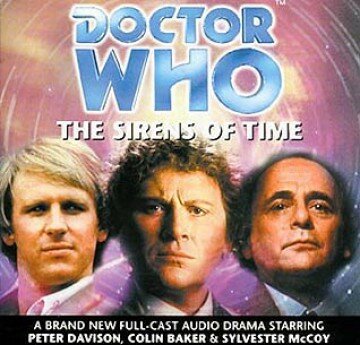
1999 was a great year for Doctor Who, one of the best for those years where it wasn’t being made properly for television. The series came back into the public eye in the UK in no less than two occasions, first with February with a new comedy episode, The Curse of Fatal Death, made for the Comic Relief charity television fundraiser, starring Rowan Atkinson as the Doctor, Julia Sawalha as his companion (and fiancee!) Emma with Jonathan Pryce as the Master, and also featuring cameos from Hugh Grant, Richard E. Grant, Jim Broadbent and Joanna Lumley. The big acting names drew all of the attention, although the episode is also notable nowadays because it was Steven Moffat’s first television script for Doctor Who. The comic relief episode garnered huge ratings for the show (the third straight time in the 90’s this happened when you add Dimensions in Time and the UK ratings for the TV Movie, all spaced three years apart mind you), which should have made everyone realize that there was still an appetite and market for the show.
Later in the year, in November, there was a special Doctor Who Night broadcast on BBC2, this time devised by Mark Gatiss, who by that point had made a name for himself with the BBC as one of The League of Gentlemen comedy group. It featured four Doctor Who comedy sketches written and featuring Mark Gatiss (as well as the likes of Peter Davison and David Walliams), documentaries and an uncut broadcast of the 1996 TV Movie (the first time the uncut version had been broadcast on UK television).
For many fans though, the biggest development for Doctor Who in 1999 was the launch of Doctor Who full cast dramas by Big Finish. The Big Finish Doctor Who audio adventures have become a phenomenom on their own,surviving the comeback of Doctor Who to television (which meant that Big Finish were no longer the only game in town when it came to Doctor Who as a drama) spawning hundreds of new Doctor Who adventures featuring all 8 of the classic series Doctors. They’ve given the likes of Colin Baker and especially Paul McGann to flesh out their Doctors after prematurely curtailed television runs, they’ve given fans a chance to experience un-made television scripts, actually-made stage play scripts, and have even had stories broadcast originally on radio. Like The New Adventures, they started off on a bi-monthly basis, their first release starring Peter Davison, Colin Baker and Sylvester McCoy in a multi-Doctor story.
The 1990’s was probably the worst decade for Doctor Who since it started, given how little new television adventures we got. But for the reasons mentioned above, 1999 ended the decade on a high.
Posted by Luca on Saturday, November 9 at 11:21 am
(2) Comments
October 24, 2013
50 Glorious Years: Episode 36 - 1998
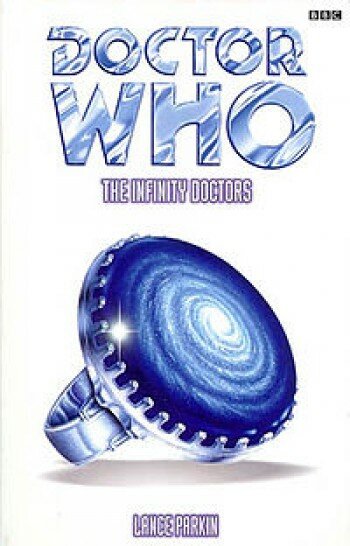 ,
,
1998 was Doctor Who’s 35th Anniversary, and was the quietest major anniversary still to this date. There was no news about a new series or tv movies (although there were reports of a possible feature film by BBC films that did give a brief flicker of hope for a day or two) that fans could even talk or day-dream about. The series celebrated its 35th Anniversary primarily with the publication of The Infinity Doctors novel. Fans also got to celebrate with the VHS release of The Ice Warriors on video, for many the first chance to see these episodes in good quality - well, episodes 1, 4, 5 and 6 that is - ten years after these missing episodes had been recovered. A couple more spin-off videos were made and released featuring monsters from Doctor Who, but there was no celebration of any kind broadcast of new material (be it new episodes or new documentaries).
Times have obviously changed.
What no Doctor Who fan knew at the time was that 1998 would be the last time the franchise had a quiet anniversary, or this quiet of a year. In 1999, things started to change again for the better, and we would never be so quiet again.
Posted by Luca on Thursday, October 24 at 7:05 pm
(6) Comments
October 15, 2013
50 Glorious Years: Episode 35 - 1997
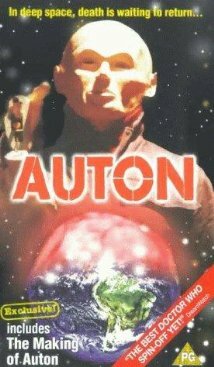
In 1997 Doctor Who fans continued to wait once again. Only, for the most part, with much less frustration. The word was that the rights to a new series still rested with Universal, the studios that had backed the production of the T.V. Movie, and the rights would not expire until the end of 1997. Which meant that nobody was really expecting any news of a new series until 1998 at the earliest.
The 8th Doctor’s adventures continued in novel form, with first entitled The Eight Doctors in June. That is, the first of the BBC 8th Doctor books - as now, for both the current Doctor (as the 8th was generally considered to be) and past Doctors were now published by BBC themselves, as they chose not to renew the licence that Virgin (the company who had purchased W.H. Allen and the Target novel range back in the late 1980’s) had to publish original Doctor Who fiction, figuring that they could do it themselves and make more money that way. With the publication of The Dying Days in April 1997 (the only 8th Doctor book published by Virgin), a long run of licensed original Doctor Who fiction from W.H. Allen/Virgin had come to an end. Virgin would continue to publish books featuring Bernice Summerfield as the lead character. The first was written by Paul Cornell and was entitled Oh No It Isn’t, and apart from starting off a run of Bernice Summerfield adventures, would prove to be very significant for other reasons in the years to follow….
The spin-off videos continued, with the start of the impressive Auton trilogy, starting in 1997 with the eponymous Auton. The series was meant to star Nicholas Courtney as the Brigadier but he wasn’t available to do the filming, so his character was replaced by a new character for UNIT called Lockwood, played by Michael Wade. With the Brigadier not really being a leading character, the new character of Lockwood this actually gave this trilogy a life of its own, and along with the books, help to keep the spirit of Doctor Who alive in its second extended period of waiting for new episodes.
Posted by Luca on Tuesday, October 15 at 8:39 pm
(2) Comments
October 06, 2013
Keep your hair on…...but more missing episodes have been found!
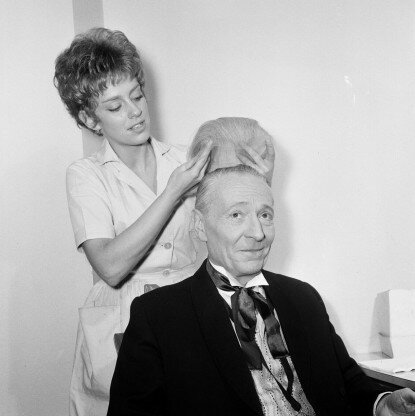
The rumours have been swirling for months that more missing episodes have been found from the worldwide search of the Archives. The Radio Times (a magazine formerly owned by the BBC but still with very strong ties to it have now provided the first confirmation of any sort that missing episodes have indeed been found. And the first ones to be made available could be available for downloading this week. You can read more in the Radio Times article here.
There’s no doubt about it - this is the best present we can have for the 50th Anniversary celebrations.
UPDATE: The BBC have finally admitted it themselves, with a press release you can read right here.
Posted by Luca on Sunday, October 6 at 5:56 pm
(47) Comments
September 29, 2013
50 Glorious Years: Episode 34 - 1996
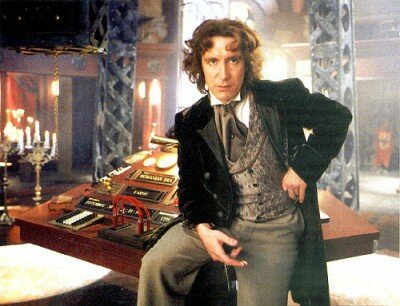
Finally in January 1996, the long wait was confirmed to be over - Doctor Who was back! Paul McGann was the 8th Doctor! And it was coming back on BBC1 and, something that is perhaps still hard to believe, network television in the US! Yes, it turned out to be for one-night only on television in May of 1996 (with the filming of the story done for the first and so far only time in Canada - the same country that would be the first to broadcast it), but the TV Movie provided so much more than one tv movie could provide in 90 minutes. Obviously there was now a brand new Doctor for the franchise, for the books, comic strips and in a few years time, the audios. But more than that, it signified that Doctor Who had survived “death” - or as most people call it in television terms, cancellation. The TV Movie burst the bubble of frustration that had existed in fandom after the series had ceased production in 1989. Even though the TV Movie did not do well enough in the US for more Doctor Who tv movies to be made for Fox and Universal, it proved that the show could be a mainstream hit again in the UK - something that should not be taken for granted after the poor ratings the series endured after the 1985 hiatus, and years of BBC brand-damaging its own property. If Doctor Who could come back successfully in the UK once after it’s cancellation, it could happen again. Despite the disappointment that no new tv movies were immediately forthcoming and this would turn out to be the only new proper television story for the show in the 1990’s, the future was definitely brighter after 1996 than it had been in the years before it.
Oh, and Paul McGann rocked as the Doctor.
Posted by Luca on Sunday, September 29 at 3:30 pm
(23) Comments
September 21, 2013
50 Glorious Years: Episode 33 - 1995
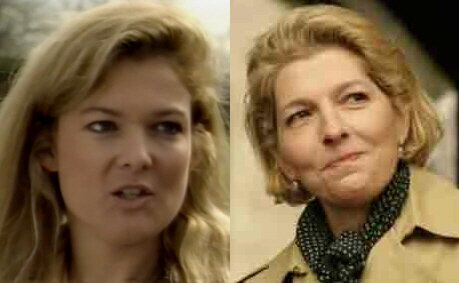
As Doctor Who edged ever so closer to returning to production, 1995 was perhaps THE year of the spin-off video. At the end of 1994, Shakedown - The Return of the Sontarans, had been released, though many fans would end up purchasing the video in 1995. This was (for a direct-to-video release) a fairy glossy space-opera adventure with some excellent special effects, a script written by Terrance Dicks and a cast featuring several stars from both Doctor Who and Blake’s 7 - Carole Ann Ford, Sophie Aldred, Michael Wisher, Brian Croucher, and Jan Chappell. Visually this looked the best of any of the spin-offs to date and with a script by Terrance Dicks, it perhaps as closest we had gotten to having Doctor Who back without actually having the Doctor in it.
This was soon followed in January 1995 with the release of the first proper P.R.O.B.E. videos - in a sense, a spin-off of a spin-off. 1994’s The Zero Imperative was actually the first to be released, but although it featured the return of Liz Shaw (once played by Caroline John) working for an organization called P.R.O.B.E. that investigated paranormal or supernatural activity, it wasn’t labelled a P.R.O.B.E. video at the time. In 1995, the first of a trio of videos with that label was released, with the first being called The Devil of Winterbourne. These videos didn’t just feature Caroline John reprising her role as Liz Shaw but once again featured other Doctor Who luminaries in regular or guest roles in this series. This included Louise Jameson playing Patricia Haggard, Liz’s boss at P.R.O.B.E. in all four videos, Peter Davison guest-starrring in two of them (Jon Pertwee, Colin Baker and Sylvester McCoy had all been in The Zero Imperative), Geoffrey Beevers, Terry Molloy, Mark Gatiss (who also wrote the scripts) and even Reece Shearsmith - who has an important role in the upcoming An Adventure in Time and Space docudrama (which I won’t spoil here for those that don’t know).
By September 1995, the spin-off video that was arguably more of a sequel to televised Doctor Who stories than anything else before (or since) has been was released - Downtime. This was a direct sequel to both Yeti adventures from Season 5, featuring both the Yeti and the Great Intelligence (and even the control spheres), effectively forming a trilogy. It featured several regular or guest characters returning to reprise their familiar roles - Nicholas Courtney as the Brigadier, Elisabeth Sladen as Sarah Jane Smith, Deborah Watling as Victoria Waterfield, Jack Watling as Professor Travers, with John Leeson playing a new character (rather than the voice of K9). Nothing else has quite linked so heavily with established Doctor Who continuity. And ironically, years later perhaps the most significant continuity development in Downttime was the invention and introduction of the character of Kate Lethbridge-Stewart, who would go on to appear in the television series some 17 years after she was created in a fan-made spin-off video. The above photo shows how the character looked in Downtime in 1995, as played by Beverley Cressman, and how she looked in 2012 in The Power of Three, as played by Gemma Redgrave. It’s a testament to how much these spin-off videos are respected and appreciated that they found an actress who looks so similar (and also about 17 or so years older than she would have been in Downtime).
And what of the tv series itself? By 1995 we knew that the US networks weren’t ready to green-light a new series. The most we were going to get was a tv movie on FOX, which, if it did well enough, could lead to more Doctor Who tv movies on that network. Yet, despite fans discussing production, plot and casting details with Philip Segal on a webchat, many fans, burned by so many false dawns, were skeptical that even a tv movie was ever going to happen. Those of us who believed, however, were getting excited and spent Christmas of 1995 eagerly awaiting an announcement of who the new Doctor was going to be…..
Posted by Luca on Saturday, September 21 at 7:22 am
(2) Comments
September 19, 2013
Sydney Newman interviewed by CBC in 1966
Here’s something one wishes that could have been included on a Doctor Who DVD. It’s a 1966 interview with Sydney Newman, one of the leading creative forces behind Doctor Who. The CBC program Umbrella interviewed the ex-pat Canadian (and former CBC executive) about his work as BBC Head of Drama.
At the 2:50 mark he shows off a toy Dalek on his desk and describes Doctor Who as a “silly sci-fi kind of thing”.
It’s brilliant to see a contemporary in-depth interview with Newman from that period. I’m sure a few production designers on An Adventure in Space and Time are wishing they could have seen that beforehand!
Posted by Graeme on Thursday, September 19 at 3:12 pm
(2) Comments
September 08, 2013
50 Glorious Years: Episode 32 - 1994
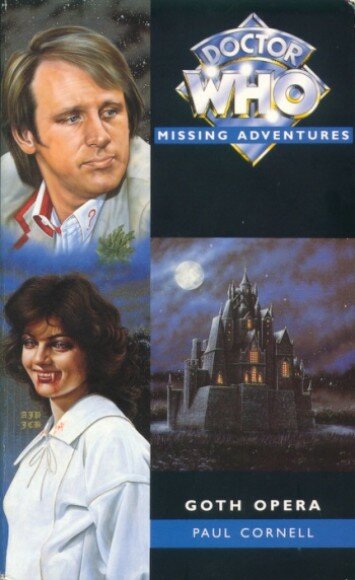
1994 continued the celebration of past Doctor Who that had begun in November of the previous year with the 30th Anniversary. More and more stories continued to be released on home video for fans to enjoy. A heavily extended version of the 30th Anniversary documentary was released under the title More Than 30 Years in the TARDIS. And the book range, which by now had gone monthly in its releases of New Adventures, expanded further by adding in new original fiction for Doctors 1 through 6 in its Missing Adventures range (called such even though none of these adventures were strictly “missing” since they had never been made or written back in the day - now, if they had novelized more of the original Season 23 adventures or Shada at that time…..but I digress). This series too started off bi-monthly but once again would become successful enough to warrant a new release every month. This meant that, remarkably, 5 years after Doctor Who had supposedly ended as a television series, it now had two book ranges of original fiction being published on a monthly basis. To anyone who was paying attention, it showed that Doctor Who wasn’t simply going to be a franchise that faded away and died after it ceased television production.
Attention in 1994 was also placed upon the continued attempts to bring the series back to television. It was a clear that a deal had been struck with Amblim Entertainment and that the rights to make a new television series were now in their hands, and contingent upon getting a US network of some kind involved. CBS became the first network to apparently express interest, but by the end of the year it was clear that they were going to pass on the series. Attention would soon turn to FOX in 1995…...
Posted by Luca on Sunday, September 8 at 9:53 pm
(3) Comments
August 30, 2013
YouTubing It #33
Fans have become really, really inventive. We all know that. But to see someone construct a title sequence for the series that’s as good as what’s on the air… that’s just incredible.
Here’s what one posited as a title sequence for Peter Capaldi. I would hope by the time the Twelfth Doctor takes the reins they would have, if not a new logo, then a new theme arrangement since this one has become too closely associated with the Smith era… but even, so, this is phenomenal. And the way they integrated Capaldi’s head into it is really, really cool.
Posted by Graeme on Friday, August 30 at 8:43 am
(5) Comments
August 24, 2013
50 Glorious Years: Episode 31 - 1993
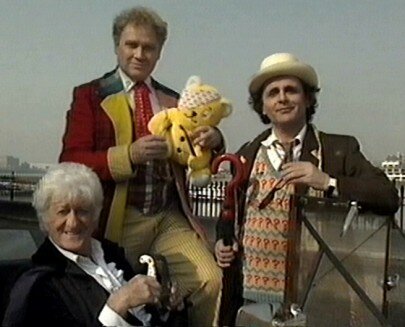
1993 was Doctor Who‘s30th Anniversary year, and despite the lack of a new series or proper new tv episodes, it saw the Anniversary celebrated in style and perhaps with more love than the BBC gave it in 1988 for the 25th Anniversary.
It was quite the wild year for Doctor Who. It started off with rumours heating up that the show would be back as a one-off tv movie to celebrate the 30th Anniversary that would be released on home video only. Then there was an official confirmation that Doctor Who would be back as a drama production - on radio. The Paradise of Death was a 5 part story that was to be broadcast in the autumn, featuring the return of Jon Pertwee as the Doctor with Elisabeth Sladen and Nicholas Courtney, in a story written by Barry Letts. As the months moved closer to the summer the rumours of the 30th Anniversary special heated up and finally in June it was reported that Doctor Who was back in production at the BBC as a television program - a one-off 90 minutes story called The Dark Dimension, featuring all five surviving actors to play the Doctor, to be shown on BBC1 and released on home video. The rumours were true! After an incredibly long wait of 3 and a half years, we heard the news we were all waiting for - Doctor Who was back!
Unfortunately, just two days after hearing the official news of the return of Doctor Who to television, I received word that the special had in fact been cancelled. Hearing that news, after getting so excited for two days, was probably the most crushingly disappointing feeling I’ve ever had as a Doctor Who fan. We weren’t going to get a new story to celebrate the 30th Anniversary after all, and if we weren’t going to get a story made to celebrate something like the 30th Anniversary, it was starting to seem unlikely to even the most optimistic fan (which I probably was and am) that the show was ever going to come back. And it was also the first time that the word “cancellation” had actually been used to describe what they had done with Doctor Who since the show had ceased production in 1989. I always believed the show would come back but the time I believed in the least was probably the summer of 1993 following the death of The Dark Dimension.
Shortly after we did hear that there would be a 30th Anniversary charity skit that would only be about 15 minutes long. At the time I heard that news it seemed like a small consolation. I was probably more excited by the news that four of the actors to play the Doctor (Jon Pertwee, Peter Davison, Colin Baker and Sylvester McCoy) were to act together in a straight-to-video non-Doctor Who sci-fi story the The Airzone Solution. And more mollifying still was the news of an official documentary, Thirty Years in the TARDIS, that was to be made and shown on tv by the BBC in November.
In October the big news came - after years of telling us that they were looking into independent co-production for the show, it was reported in reputable BBC papers that the BBC were in negotiations with Steven Spielberg to make a new television series of Doctor Who. It was the hope that turned the tide in celebrating the 30th Anniversary in a positive mood. Jonathan Powell had now finally left the BBC and his replacement, Alan Yentob, was interested in getting new Doctor Who made for television. Armed with the tangible proof that the BBC were interesting in making Doctor Who again, a November 1993 spent listening to The Paradise of Death, watching The Airzone Solution, Dimensions in Time and Thirty Years in the TARDIS was made a much more positive and uplifting experience as a result. By the time the 30th Anniversary year had ended, all doubts that the show would ever come back had forever been exterminated. As I watched the Dalek at the end of Thirty Years in the TARDIS repeat “We shall return!” over and over again, I had come to the conclusion that Doctor Who not only was going to come back to television - it absolutely had to.
Posted by Luca on Saturday, August 24 at 8:38 pm
(5) Comments

The Doctor Who Blog is a collaborative weblog put together by the people at the Doctor Who Information Network that bring you Enlightenment, the most dangerous Doctor Who fanzine in the world.
The Doctor Who Blog's mission is to provide witty and insightful commentary on the world of Doctor Who in all its various forms. And to make several bad puns and references to jokes Tom Baker once made.

To Monthly Archives
Recent Entries
- The Companion Departures - #7 - Susan
- The Companion Departures - #9 and #8 - Ian Chesterton and Barbara Wright
- The Companion Dpeartures - #11 & #10 - Jamie McCrimmon and Zoe Herriott
- The Companion Departures - #12 Steven Taylor
- The Companion Departures - #13 Amy Pond and Rory Williams
- The Companion Departures - #14 Tegan Jovanka
- The Companion Departures - #15 - Sara Kingdom
- The Companion Departures - #16 - Katarina
- The Companion Departures - #17 - Vicki
- The Companion Departures - #18 - Vislor Turlough
- The Companion Departures - #19 Mickey Smith
- The Companion Departures - #20 - Rose Tyler
- The Companion Departures - #21 - Martha Jones
- The Companion Departures - #22 - Captain Jack Harkness
- The Companion Departures - #23 - Harry Sullivan
